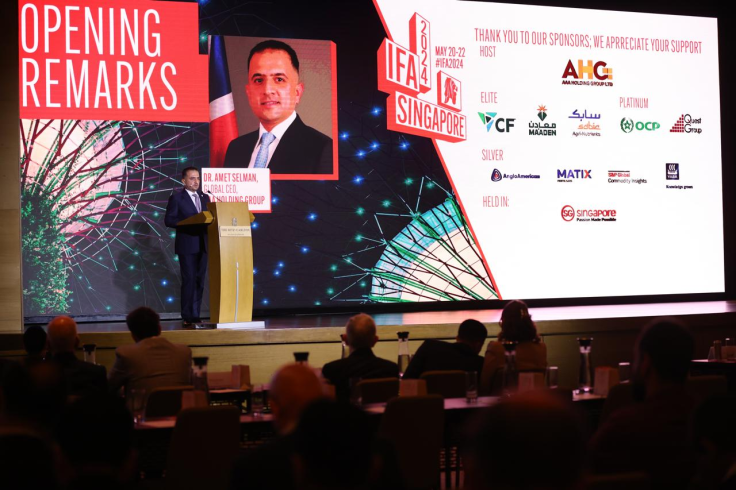Securing Food Through Resilient Agribusiness Practices Amidst Future Challenges
Our world grapples with the complexities of climate change and food security, and some
regions are in a more vulnerable position than others. Therefore, addressing global agricultural malpractices has never been more crucial. The recent conference in Singapore, hosted by AAA Holding Group, titled "Nourishing the Planet, Powering the Future: Aligning Agribusiness with Global Trends," highlighted the necessity of aligning long-term agribusiness goals with shifting geopolitical and regulatory landscapes.
The Asia-Pacific region, a key player in global agriculture, is at a critical juncture. Unsustainable practices such as land overuse, deforestation, and monoculture farming are not just depleting soil fertility but also threatening the very fabric of our environment. The stakes are high, with economies like Vietnam, Thailand, and the Philippines heavily reliant on agriculture for both food security and economic stability. However, these countries are also the most vulnerable to climate change, with rising temperatures and erratic weather patterns wreaking havoc on crop yields. The ongoing trade tensions and policy changes in the region further underscore the need for agile and adaptive agribusiness practices.

One of the key takeaways from the conference was the need to align agribusiness practices with global trends to foster resilience.Dr. Amet Selman, CEO of AAA Holding Group, emphasized this, stating, 'This alignment is not just a strategic move, but a necessity for our sector to tackle emerging challenges and seize new opportunities.' For instance, precision farming techniques, which leverage technology to optimize resource usage, can significantly reduce waste and enhance crop yields. These practices are particularly relevant in the Asia-Pacific region, where smallholder farmers can reap substantial benefits from such advancements.
In his keynote session during the conference, Dr. Salman emphasized the critical role of responsible phosphate management in sustainable agriculture. "At AAA Holding Group, we recognize that our mission to support global food security goes hand in hand with managing the resources that sustain it—particularly phosphates, a critical ingredient in agriculture," he stated.
The conference also highlighted the importance of partnerships and collaborative efforts. Dr. Salman pointed out, "By aligning our long-term goals with external changes, we are better positioned to tackle the challenges and seize the opportunities that arise." AAA Holding Group's investments in Iraq and North America exemplify this approach. Their facilities in Iraq, capable of producing 1 million tons of fertilizer, have not only boosted their global presence but also positively impacted local economies and agricultural communities. This model of strategic development and regional engagement serves as a blueprint for sustainable growth in other regions.
As part of its commitment to sustainable agriculture, AAA Holding Group has also launched educational initiatives to teach farmers about soil health and optimal fertilizer usage. These efforts are crucial in regions like Southeast Asia, where educating farmers on sustainable practices can lead to higher crop yields and improved food security. In addition, the company also ensures that it stays at the forefront of industry advancements through its collaboration with the Iraq Britain Business Council and membership in the International Fertilizer Association.
The conference called on both world leaders and the general public. The message was clear: sustainable agriculture is a shared responsibility. Policymakers need to implement regulations that promote environmentally friendly farming practices while consumers can support sustainable products and reduce food waste. Dr. Salman encapsulated this sentiment, saying, "Nourishing the Planet, Powering the Future" is not just our conference theme; it is our guiding principle. It encapsulates our pledge to advance food security, manage essential resources responsibly, and contribute to a sustainable future for all."
The path forward for all of us lies in resilience and innovation. It's time that we all combine our efforts to align our practices toward sustainable goals, to ensure that our future generations inherit a planet capable of nourishing them.
© Copyright IBTimes 2025. All rights reserved.





















